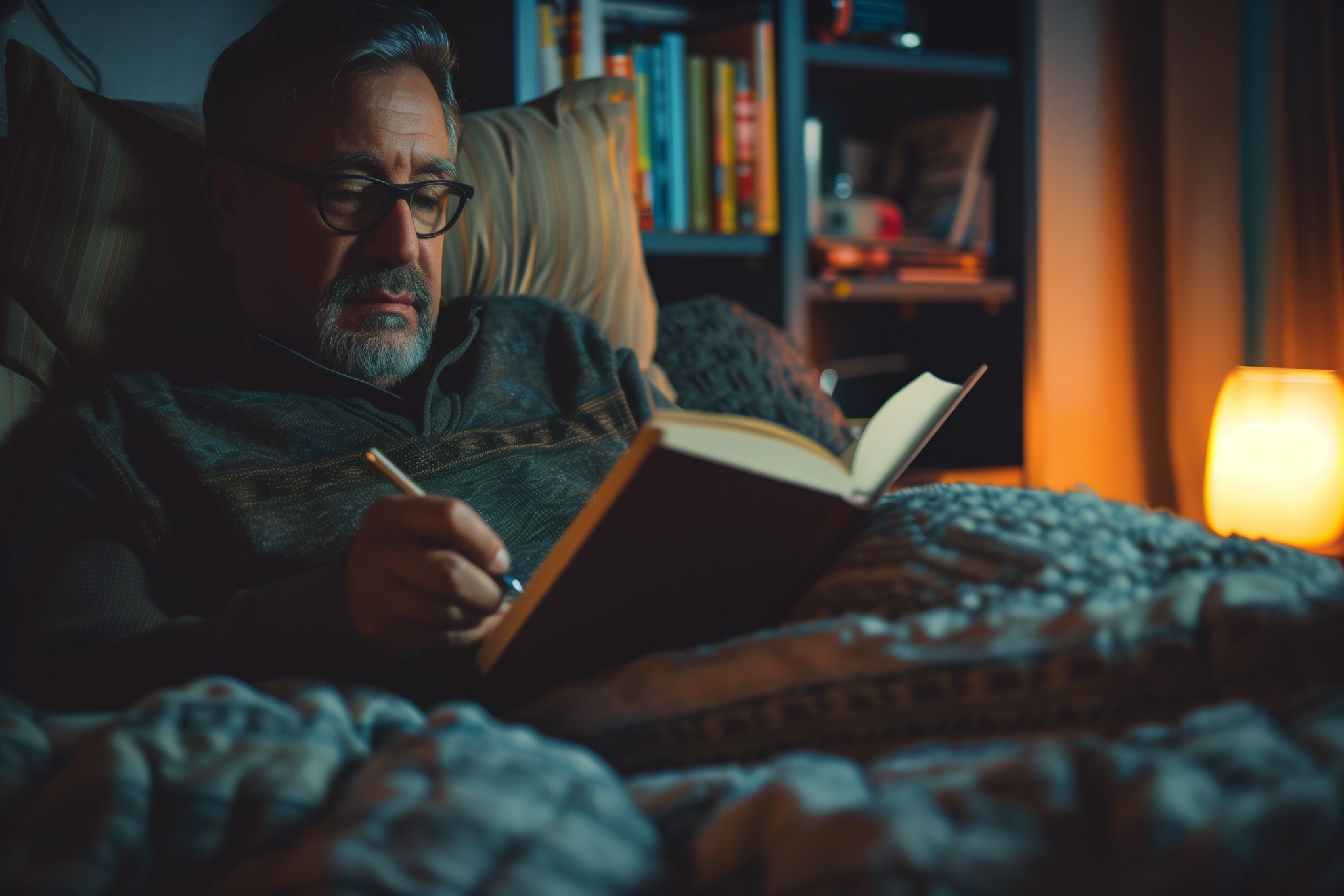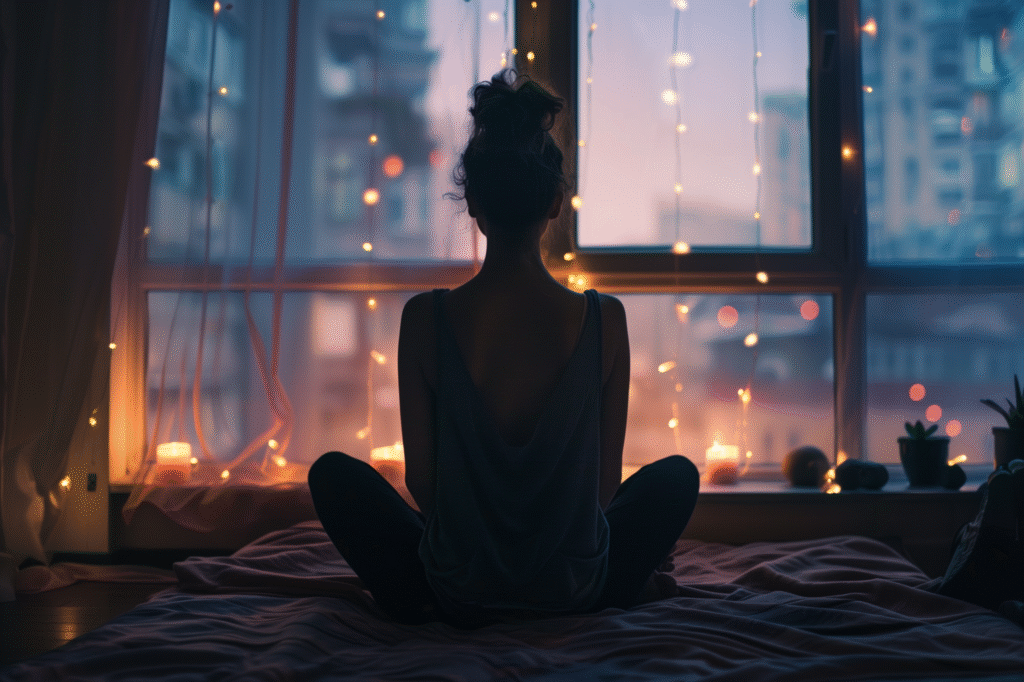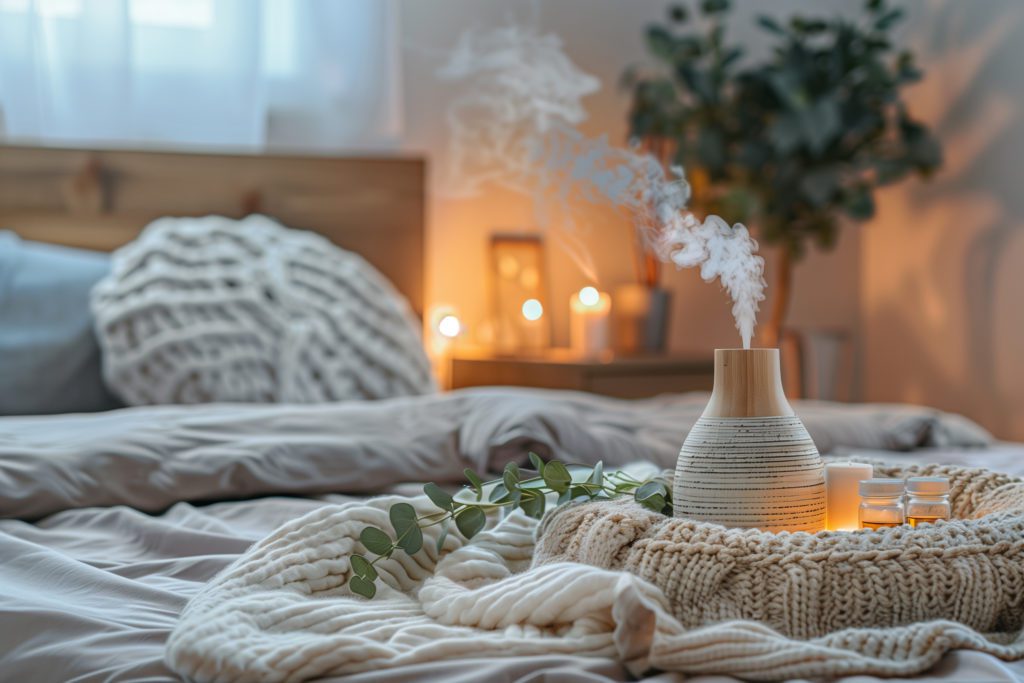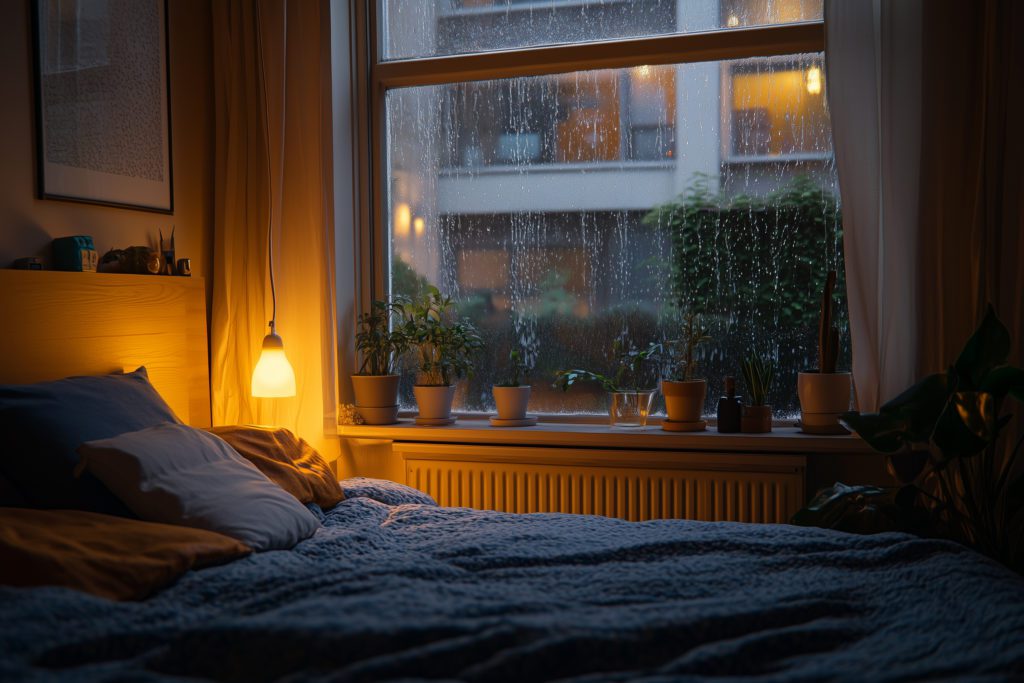
How Can I Fall Asleep Faster? Helpful Techniques and Tips
Those who struggle to fall asleep can find tips for falling asleep faster, including good nighttime and daytime habits that make going to bed easier.

Does it take you an hour or more to fall asleep at night? Sleep is vital for both your physical and mental well-being, but it can be hard to get enough sleep when you can’t fall asleep, no matter how early you go to bed.
It can be stressful, lying in bed knowing that the longer it takes to fall asleep, the more tired you’ll be in the morning—stress which then makes it even harder to fall asleep.
If you’ve spent more nights staring at the ceiling instead of getting lost in your dreams, we’ve compiled some tips and techniques to help you fall asleep faster.
6 Tips to Fall Asleep Faster
If you’re looking to fall asleep faster, you’ll first need to look at your current sleep habits to see if there are any areas where you’re hindering your ability to fall asleep. Then, you can add in good sleep habits. Follow these two steps, and you’ll be dreaming before you know it.
Focus on Your Sleep Routine
The first step in having an easier time falling asleep is ensuring your sleep hygiene is up to par, and your sleep routine is a crucial element of this.
Your sleep routine helps regulate your circadian rhythm, your inner clock that maintains your metabolism, thermoregulation, and sleep-wake cycles. The more regular your circadian rhythm, the easier it will be for you to fall asleep, and you can promote regularity by following the same schedule each day at the same times.
As for your sleep routine itself, what you do leading up to bedtime sets the tone for the night and can either relax your body and make you sleepy or energize you, keeping you awake at night. So, try incorporating relaxing activities into your sleep routine, such as listening to soothing music, which may make it easier to fall asleep and improve your sleep quality.
Other relaxing activities to include in your sleep routine are journaling and reading. Small studies have shown that writing before bed decreased bedtime worry and stress while increasing the amount of time the participants were asleep. Reading during the hour before bed can produce similar results by improving sleep quality, efficiency, and duration. However, reading from an e-book may have the opposite effect because it produces blue light, so opt for print books instead.
On the subject of blue light, avoiding it is the final component of a sleep routine. Our electronics emit blue light, which suppresses melatonin, our body’s sleepiness hormone. Melatonin is what helps you fall asleep, and its suppression may be what keeps you awake. Avoid electronics at least an hour before bed to be safe, and opt for unplugged activities instead.
To recap, your sleep routine should:
- Be around the same time each night
- Follow the same schedule each night
- Incorporate relaxing activities (e.g., reading, listening to soothing music, journaling)
- Exclude electronics (and blue light)
Exercise During the Day
It’s not just nighttime that you should be preparing for sleep. Completing certain activities during the day can make it easier to fall asleep, and exercising is one of them—however, timing, duration, intensity, and location matter.
The longer your physical activity during the day, the better you will sleep, and moderate and intense exercise can further improve your sleep quality.
However, you’ll want to avoid working out too close to bedtime, with studies finding that exercising two hours before bed may result in poorer sleep quality, especially if you work out in a gym with bright lights.
Give Aromatherapy A Try
A review of 30 studies suggests that aromatherapy may improve sleep quality while also reducing anxiety, depression, stress, and pain, all elements that can make it harder to fall asleep. As for the essential oils to try, lavender and peppermint have been shown to help improve sleep.
Avoid Naps
Daytime naps may sabotage your night by making it so you’re not tired enough to fall asleep. Research has shown that the poorest sleep quality occurs in those who nap for more than 2 hours, those who nap late (between 6 p.m. and 9 p.m.), and those who take three or more naps a week.
If you choose to nap during the day, avoid the above scenarios. Instead, opt for a 20-minute nap in the early afternoon.
Give The Coffee A Break
While caffeine is often considered a morning necessity, if you’re having difficulty falling asleep you may need to be more conscious of how late into the day you drink caffeinated beverages such as coffee or tea.
Studies have shown that caffeine can remain in your system for up to 10 hours after consumption, even if you no longer feel its effects. Another study suggests that consuming caffeine 6 hours before bed can lead to one hour less sleep.
Some people can also be more sensitive to caffeine, which may be why some people can drink caffeine later in the day and be fine, and others cannot. If you’re having difficulty falling asleep, look at when you drink caffeine and try giving yourself a cut-off time to see if that helps.
Try Visualization
Visualization is a powerful method of engaging your imagination and can be immensely calming. A 2011 study even suggests that picturing a peaceful and relaxing environment can help you fall asleep by keeping your mind from thinking of stressful thoughts.
Set Yourself Up for Bedtime Success
If you want to sleep but your body won’t let you, it may be for a variety of reasons, such as:
- Using electronics before bed
- Consuming caffeine too close to bedtime
- Exercising too close to bed
- Being uncomfortable with your mattress or room
To help you fall asleep faster, make sure your sleep hygiene is good by creating an optimal sleep environment and enacting a sleep routine that promotes relaxation. As for quick fixes to fall asleep, try aromatherapy or visualization, which can help quiet the mind enough to fall asleep.
Continue implementing good daytime and nighttime habits, and you’ll soon find it easier to fall asleep. If sleep is still hard to come by, though, or you wake often during the night, reach out to your doctor—they can help you understand why this is occurring.
Check out Pillow’s resource library for more tips on improving your sleep quality.

Written by
Jessica G
Medical writer freelancer who has written hundreds of articles on varying topics. Masters of Engineering degree in Biomedical Engineering.
Download Pillow
Get help
Press & News
Legal
Connect
X (Twitter)
Company
Copyright © Neybox Digital Ltd.



